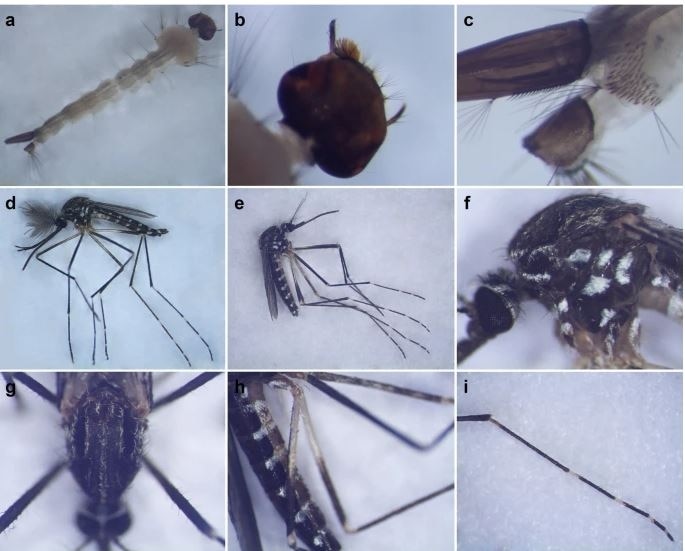Share
19 October 2021 Mosquitoes are not escaped even in winter. According to a research by the University of Milan, recently published in
"Parasites & Vectors"
,
Aedes koreicus
, the cold resistant Korean mosquito
, is increasingly widespread in Lombardy
.
The involuntary introduction by man of alien species of animals and plants, outside their territory of origin, is a phenomenon in constant increase, already happened for example with the best known "tiger mosquito" (Aedes albopictus ), originally from Asia and now widespread throughout Europe.
Climatic conditions, movement of goods and people, availability of "hosts" and environments suitable for the development of larvae are just some of the factors that favor the spread of alien species.
The Korean mosquito Aedes koreicus is spreading
particularly rapidly
on our territory, in particular in the foothills and plains of northern Italy. In the summer of 2020, during a surveillance program of sites at risk of introducing new invasive mosquitoes, in particular
between the provinces of Bergamo and Brescia
, researchers from the University of Milan collected about 6,000 larvae and hundreds of mosquito eggs from water collections (small ponds, artificial tanks, containers, etc.). Many of these mosquitoes have been identified as belonging to the Aedes koreicus species, probably originating from the population of the South Korean volcanic island of Jeju District.
"The Korean mosquito is endemic in Japan, northern China, South Korea and some areas of Russia. It was first reported in Italy in 2011 in the province of Belluno, at altitudes and climatic conditions unsuitable for survival. of most species of mosquitoes. Since then the reports in northern Italy have increased. We emphasize that this mosquito, unlike the known "sisters" of the genus Aedes, like the tiger mosquito, tolerates low temperatures very well, so much so that it has a large hilly-mountainous area of Veneto and Trentino has already been colonized ", explains Sara Epis, professor at the Department of Biosciences and research coordinator.
"Apparently, the Korean mosquito is spreading from the original infested area to southern and western Italy, probably in relation to the intense transport activities of goods and the availability of suitable habitats in other areas. Its presence in the foothills of the province of Bergamo leads us to think that
the international airport of Orio al Serio
could be a possible route of introduction. Or, Aedes koreicus could have been introduced in Bergamo from other infested areas of Italy or Switzerland. Obviously further genetic studies there they will help to better understand its origin "underlines Paolo Gabrieli, researcher in the same Department.
The researchers stress that the investigations on mosquitoes, and in particular on invasive alien species, should be intensified, not only in relation to the fact that they are annoying and annoying insects, but above all in relation to their ability to transmit pathogenic viruses for the man and for animals.
The research activities were supported by the great commitment and contribution of researchers from the University of Milan and the IUSS University of Pavia.

